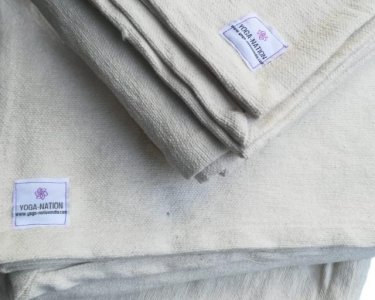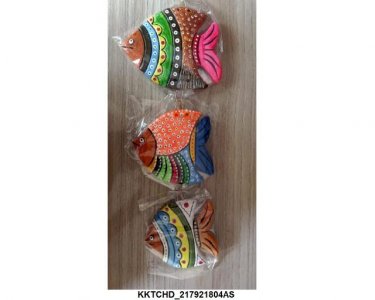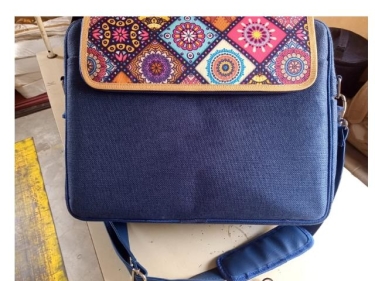Search Results for "dominica" in "Dominica" on Export Portal
Active Filters
-
Keywords:
-
Country:
- Clear all
New Search
Couldn't find the product you want?
Fill out this form to request the product.
Exports

Dominica's economy relied entirely on agriculture in the past, but at present the government promotes a diversification of this domain. The diversification includes the development of geothermal energy resources and the encouragement of offshore financial industry. In addition, the government promotes Dominica as a ecotourism destination.
Agriculture is the major Dominica's economic sector and bananas are the main crop cultivated on the island. Dominica exports mostly bananas, but it began to export small quantities of citrus, vegetables, and exotic fruits (mangoes, guavas). The island also developed manufactured exports of soap produced from coconuts, which are quite successful.
Among other important industries fishing and forestry can be outlined. Fishing is a developed industry in Dominica, but it serves the domestic market and isn't destined for export. Forestry also plays an important role in Dominica's economy, as it has a potential for lumber industry (61 percent of Dominica's area is covered by forests).
Dominica's government continues to encourage the development of the economic sector by establishing trading relationships with other countries. The main Dominica's export partners are Jamaica, France, Antigua, Trinidad and Tobago, Saudi Arabia, Guatemala.
Dominica's main exports are: bananas, grape fruit, soap, refined petroleum, medical instruments, rubber footwear, cement.
Customs requirements of Dominica
Dominica Customs Contacts
Website: http://www.investdominica.com
Email: customs@cwdom.dm
Address: The Customs and Excise Division/ Customs Building/ Deep Water Harbour, Fond Cole, Dominica
Telephone: +1 767 448 2401
Dominica, whose official name is Commonwealth of Dominica, is an island situated in the Caribbean Sea between the French islands Guadeloupe and Martinique. Dominica's official language is English and its currency is the East Caribbean dollar. It is a member of the World Trade Organization (WTO), CARICOM, Organization of Eastern Caribbean States, World Bank and International Monetary Fund.
Tariffs
Import tariffs are based on CARICOM's Common External Tariff and range from 0% to 165% for non CARICOM members. The highest customs duty, 165 percent, is applied on paints, varnishes and enamels and the highest tariffs for agricultural products represent 150 percent. A customs service charge (CSC) of 3% is also applied on the c.i.f. value of all imports, except for governmental imports, imports by charitable organizations and diplomatic missions. An environmental surcharge is applied as well: 1.5% on goods in containers made of plastic, glass, metal, paperboard or wood; 1% on motor vehicles less than five years old; 1% on all other goods.
The excise tax at various rates is applied on fuel, alcohol, tobacco, motor vehicles. The VAT represents 15 percent, but it is reduced to 10 percent for hotel accommodation and to 0 percent for some agri-food products (rice, flour, sugar, milk), fuel, orthopedic appliances and invalid carriages.
Product certification, packaging, labelling
Trade licenses are mostly required for restricted imports such as: arms and ammunition, gunpowder, explosives, spirits and wines, tobacco, cigars, live animals, meat of animals, poultry or bird carcasses, plants and plant products, vegetables, fruit, pesticides.
Labelling rules: the country of origin must be marked on consumer goods. On the package must be indicated the quality, ingredients and net weight. It is important for all sizes and weights to be converted to the metric system.
Documents for import/export
The importer must present an import declaration (5 copies) containing the following details:
- name and address of exporter/importer
- tax payer account (trader code)
- name of vessel, nationality of vessel, date of report of vessel
- mode of transport, port/frontier office
- country of origin/destination country
- accurate declaration of values, regimes, Customs Procedure Codes (C.P.C.), tariff classifications, quantities, supplementary quantities, weights, origin, conversion rates, duty/tax rates and duty calculations; and
- the precise and proper description of the goods.
The declaration must be accompanied by the following documents:
- Invoice (2 copies: the original and one copy; 2 translated copies if it is in foreign language) relating to the customs value of the imported goods
- Bills of Lading/Airway Bills (2 copies)
- Value Declaration Forms
- Work sheets (2 copies), when applicable
- Certificate of Origin (2 copies, for goods from CARICOM member states)
- Duty Free Exemptions (FTI 101 forms, 2 copies for qualified firms), when applicable
- Duty Free Exemptions for Vehicles (FTI 104 Forms, 2 copies for returning residents), when applicable
- Import licences and health permits, when applicable
- Delivery Notes, when applicable
- Packing list, when applicable
- Insurance certificates, when applicable
- Contract of sale, when applicable
- Proof of payment, when applicable
- Proof of exportation of goods reimported, when applicable
- Proof of warranty and exportation for goods under warranty that are imported, when applicable.
Sources:
http://www.investdominica.com/the-ida-full-guide-to-doing-business-in-dominica/taxation/
https://www.wto.org/english/thewto_e/countries_e/dominica_e.htm
http://www.dominica.gov.dm/cms/files/customs_import_and_export_procedures.pdf





























